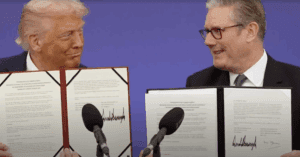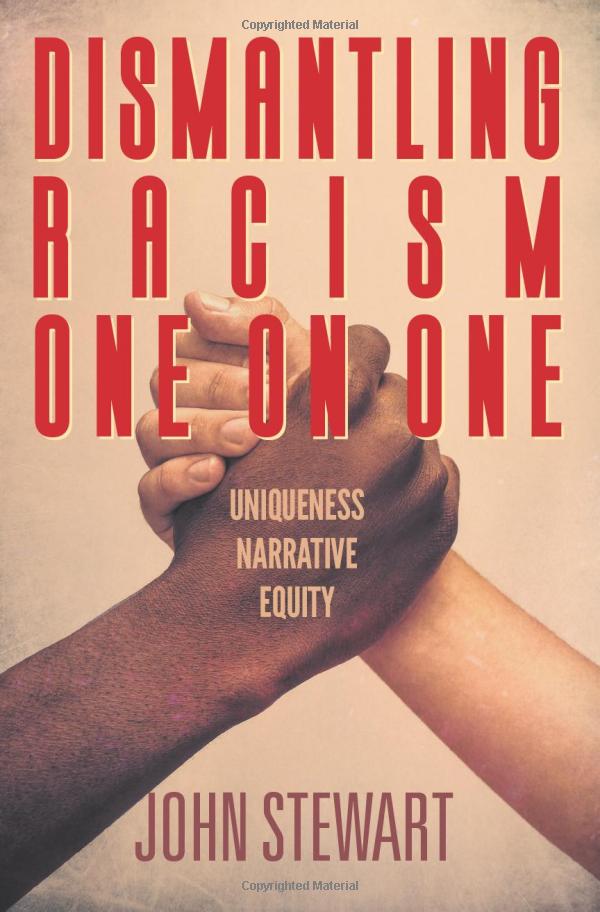
British Prime Minister Keir Starmer said this on the occasion of President Trump’s September, 2025 visit to the UK: “. . .time and time again, it is British and American men and women, side by side, changing the path of history and turning it towards our values, towards freedom, democracy, and the rule of law.”
I can applaud this sentiment. Of course, world history includes counter-examples, when the U.S. and the U.K. were not side by side and when our efforts to pursue these values were misguided or much worse. But overall, we’ve often been together on the right side of history, and I am eternally grateful for the cosmically random blessing of being born in this country.
I’m also a DEI theorist/practitioner. For over two decades, I’ve written about DEI, created DEI curricula, and facilitated DEI training workshops. In May, 2025, U.S. Executive Order 14170 proclaimed that these two cannot go together. The Trump Administration announced new hiring criteria for federal jobs, and the new strategy prohibits diversity, equity, and inclusion (DEI) considerations and establishes patriotism as a selection criterion. The Order claims that DEI efforts are committed to “illegal racial discrimination under the guise of ‘equity,’ . . . Inserting such factors into the hiring process subverts the will of the People, puts critical government functions at risk, and risks losing the best-qualified candidates.” They say you can’t be both patriotic and committed to DEI.
DEI efforts have been around since 1961, when the federal government first mandated that businesses work toward increasing the diversity of their workforces. Predictably, with this impetus, DEi has turned into a multi-billion dollar industry that, especially because it is almost completely unregulated, models its first focus. DEI offerings are remarkably diverse. It’s not suprising that critics can find examples of DEI offerings generated by biased, agenda-driven, poorly-prepared curriculum developers and facilitators. The actual number of unpatriotic, divisive, and racist DEI programs is not something addressed by Executive Order 14170, which is unfortunate, because none that I’m aware of teaches “illegal racial discrimination under the guise of ‘equity.'” If these criticisms were true, I couldn’t continue my commitments to both this work and my country. Let me sketch why I can:
- I get it that systemic racism is real, that systems are made up of persons, and that I may have to make some changes in order to dismantle racism. In other words, I try to practice cultural humility. I don’t expect “society” or “my culture” to change without me changing. I know I can learn from people who are different from me, that I need to listen carefully to people of color, and that I need to have the courage to change the things I can.
- I’ve outgrown falling in love with a fantasy. I admit I’ve had crushes on celebrities, suffered car lust for six-figure Italian mid-engine roadsters, and dreamed of sailing my own boat to Hawaii. But I don’t want to love a fantasized country any more than I want to marry an unreal, flawless woman. As George W. Bush said, “”A great nation does not hide its history; it faces its flaws and corrects them,” and he was talking about U. S. chattel slavery. When I first learned about some typical DEI topics, including the Tulsa Massacre, how the G.I. Bill discriminated against Blacks and created Redlining, and the 1:10 ratio between Black family and white family wealth, I didn’t love my country less. I loved it more fully, because I was better informed.
- It’s easy for me to understand the difference between “responsibility” as guilt and shame and “respons-ability” as the willingness and ability to respond. When, as an old white guy, I learned about white privilege, I didn’t spend time feeling shame or guilt, because I know that’s useless. I realize that I am now better informed, so I can respond to instances of white privilege differently. I better understand one more large system that I am part of whether I like it or not–just as I’m a male even though I reject the abuses of women that have been perpetrated by some other males. DEI has helped me respond in better informed ways.
- I’m familiar with the commitments, curricula, and teachings of a dozen DEI practitioners, and none is guilty of the abuses I see in the press.. I can quote statements from DEI curricula that explicitly say, “This material is not meant to shame anyone,” or, “Nobody in this room is guilty of. . . .” I have heard, uttered, and read dozens of explanations of “equity,” none of which preaches “illegal racial discrimination.” I have yet to see any data to support these claims about the abuses of DEI programming.
Before you jump on any bandwagon arguing that DEI should be eliminated, investigate what’s being attacked carefully. See if you can join me as a patriotic DEI supporter.


